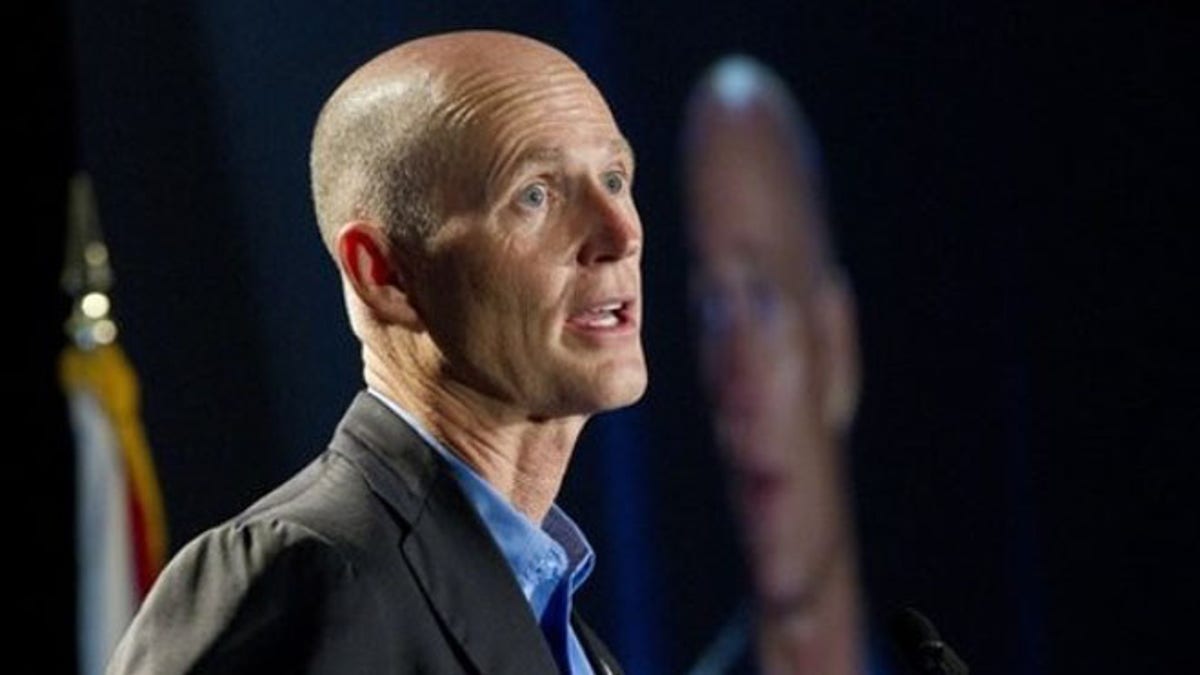
Florida Gov. Rick Scott in Fort Lauderdale, on May 16, 2012. (AP)
Florida officially renewed its hunt for ineligible voters on Wednesday, sending a new list of 198 people suspected of being non-U.S. citizens to county election officials and asking them to start the process to remove them from the rolls.
This new list is a far cry from the more than 2,600 registered voters that state election officials once targeted -- but Republican Gov. Rick Scott and others have defended the continued effort.
"I have not talked to one Floridian who says I want my vote diluted by somebody who has never had a right to vote in my state," Scott said last week. "We are doing absolutely the right thing. We believe in honest and fair elections."
It's not clear, however, if the latest effort by the state will result in voters being removed from the rolls prior to this year's presidential election. Florida is a key swing state, and voting rights groups have criticized the purge as a way of discouraging legal immigrants and minorities from casting ballots.
Under the process that election supervisors will use, they will send out letters to those suspected of being non-citizens. In some cases it could take up to 60 days before the voters are eventually removed from the rolls.
"It's going to take a while," said Susan Bucher, the Palm Beach County elections supervisor, who was sent the names of 14 voters suspected of being ineligible. "It lands us after Election Day."
It was Scott who last year first pushed to have the state look for non-U.S. citizens on the rolls. The state initially compared a list of driver's licenses with voter registration data and came up with a potential list of 180,000 voters suspected of not being citizens.
That list was pared back to much smaller one of more than 2,600 registered voters that was sent out to county election officials this past spring. Many election supervisors, however, did not wind up removing anyone after questions about the law and the accuracy of the list arose. There are still outstanding lawsuits that contend that the state lacks the authority to remove voters within 90 days of Election Day -- although one federal judge this summer sided with the state.
The most recent list came about after the state reached an agreement with the U.S. Department of Homeland Security to screen names on a federal immigration database. That yielded a list of 207 names -- which has gotten smaller as state officials have continued to verify information.
Some of those on the most recent list include voters who have already admitted that they are not citizens.
Most of the voters on the latest list are from Miami-Dade County, although there are suspected ineligible voters from the Panhandle to Southwest Florida.
While Florida moves ahead with its most recent purge, the state has agreed to ask counties to reach out to the voters targeted earlier this year and inform them they are still registered.
The state also agreed to place back on the rolls any voter whose non-citizenship status has not been confirmed by the database Florida is now using. At least two counties -- Collier and Lee -- had removed voters from the rolls because they did not respond to certified letters and newspaper ads.




